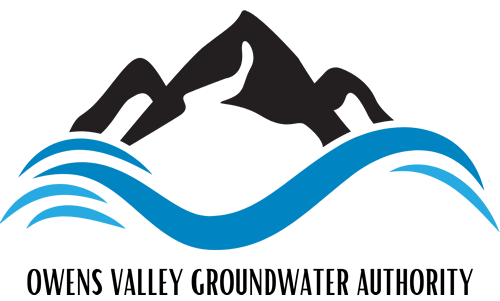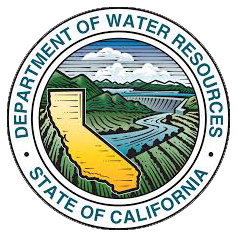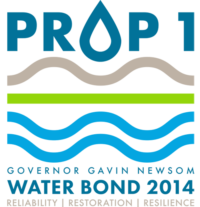OVGA Communication & Engagement Plan
The purpose of this Communication and Engagement Plan is to assist the Owens Valley Groundwater Authority (OVGA) in its efforts to develop general and strategic communications to engage stakeholders in groundwater management activities.
California’s Sustainable Groundwater Management Act (SGMA) of 2014 requires broad and diverse stakeholder involvement in Groundwater Sustainability Agency (GSA) activities and the development and implementation of Groundwater Sustainability Plans (GSP) for 127 groundwater basins around the state that are listed at high or medium priority. While the Owens Valley Groundwater Basin has recently been characterized by the California Department of Water Resources (DWR) as a low priority basin (as of December 2019)1, it has elected to move forward with development of a GSP. The OVGA was created to comply with the SGMA requirement that local agencies sustainably manage groundwater in the Owens Valley Groundwater Basin (OVGB).
The intent of SGMA is to ensure successful, sustainable management of groundwater resources at the local level. Success will require cooperation by all stakeholders, and cooperation is far more likely if stakeholders have consistent messaging of valid information and are provided with opportunities to help shape the path forward.
To that end, the intention of the Communications and Engagement Plan (Plan) is to make transparent to stakeholders their opportunities to contribute to the development of a GSP that can effectively address groundwater management within the Owens Valley Groundwater Basin. At the same time, the intention of the Plan is to provide community leaders and the OVGA with a roadmap to follow to ensure stakeholders have meaningful input into OVGA decision-making, including GSP development, through a process widely seen as fair and respectful to interested parties.
The OVGB is a large basin – 1,030 square miles – with a number of jurisdictional, legal, and water management considerations specific to the basin. The Basin includes the Owens, Round, Chalfant, Hammil, and Benton Valleys as well as Fish Slough. Owens Valley is currently identified as a low priority Basin by DWR, and not in a critically overdrafted condition. However, in 2014 the Basin was considered a medium priority basin, but an approved basin boundary modification in 2016 triggered a reassessment of basin priority. In 2018 DWR proposed the basin be classified as high priority due largely to out-of-basin groundwater exports. The OVGA objected to that draft DWR designation and in May 2019, the DWR released phase II of its prioritization proposing to designate the basin low priority. That designation was finalized in December 2019.
The GSA for the Basin was formally established as the Owens Valley Groundwater Authority in May 2018. The OVGA is a joint exercise of powers agency composed of Inyo County, Mono County, City of Bishop, Indian Creek-Westridge Community Service District (CSD), and Big Pine CSD. Each of these members has water supply, water management, or land use responsibilities, and is thus eligible to individually form a GSA. The document forming the Owens Valley Groundwater Authority allows for tribes, federal agencies, the Los Angeles Department of Water and Power, PUC regulated private water companies, and other interested parties to have a voting role in GSA decision making. The OVGA has two Interested Party seats for the Lone Pine Paiute Shoshone Tribe and the Owens Valley Committee.
The OVGA is administered by a governing board consisting of one primary appointment and one alternate from each member agency. All OVGA Board of Director meetings are public, noticed, held and conducted in accordance with the Ralph M. Brown Act open and public meeting law. The Board may occasionally establish ad hoc committees for the purpose of making recommendations to the Board on the various activities of the Authority.
OVGA decisions will be informed through staff direction, development of recommendations from ad hoc committees, and input from technical consultants. Furthermore, the OVGA and their staff representatives will engage with Basin stakeholders through the strategies outlined in this plan to help inform the OVGA’s decisions.
The intention of the Communication and Engagement Plan is as follows:
- To provide the OVGA, community leaders, and other beneficial users a roadmap to follow to ensure consistent messaging of SGMA requirements and related Basin information and data.
- To provide a roadmap to the OVGA and community leaders to follow to ensure stakeholders have meaningful input into OVGA decision-making, including GSP development.
- To ensure the roadmap demonstrates a process that is widely seen by stakeholders as fair and respectful to the range of interested parties.
- To make transparent to stakeholders their opportunities to contribute to the development of a GSP that can effectively address groundwater management within the Basin.
The Plan seeks to accomplish the following goals:
- Educate stakeholders about:
a. SGMA and its requirements.
b. Potential changes to current groundwater management under SGMA.
c. OVGA member agencies within the Owens Valley Groundwater Basin.
d. How stakeholders are represented in the OVGA. - Communicate important deadlines and dates pertinent to GSP development.
- Articulate strategies and channels for gaining ongoing stakeholder input and feedback to inform GSP design and development.
- Coordinate outreach and engagement activities between OVGA member agencies, and between Basin management areas, to ensure efficiencies and to support stakeholders in GSP development.
- Encourage stakeholder engagement by advertising dedicated SGMA outreach channels, including meeting and workshop dates and content, as opportunities for stakeholders to provide input in the OVGA decision-making process and GSP planning process.
- Gain early and continuing feedback to inform GSP
Opportunities for stakeholder input will be provided throughout the GSP development process, by way of public participation at OVGA Board of Directors meetings, hosted public workshops, direct outreach to constituent groups, and other mechanisms as outlined in this document. Timely notification of opportunities for interested parties to participate in the development and implementation of the GSP should be given via the channels and strategies described within.
Request A Callback






